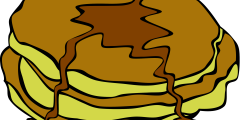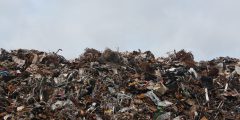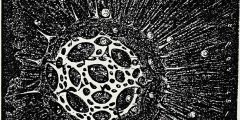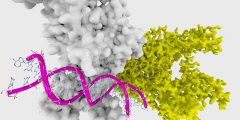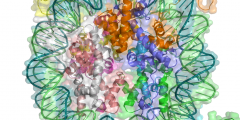Epigenetics: Between fundamental science and fantastic expectations
April 5, 2019
One of my heroines in the field of epigenetics is Edith Heard. In this post I will tell you what I learned from her over the years with regard to epigenetic facts and fantasies. (For a good overview of facts and fantasies, watch this video at ‘Cracked Science’). Before I do that, you might want …
From epigenetic landscapes to epigenetic pancakes
March 1, 2019
As somebody interested in metaphor, art and science, I was just starting to read Susan Merrill Squier’s book Epigenetic Landscapes: Drawings as metaphor (2017) (I am grateful to Cath Ennis for sending me this book), when Aleksandra Stelmach alerted me to a blog post entitled “Epigenetic Pancakes”. It was therefore inevitable that I should write …
The exposome – the what?
February 22, 2019
I recently came across the term ‘exposome’ (roughly, the sum total of everything we are exposed to) and started to read up on it. But I just don’t know what to make of it… is it merely humbug or is there more to it? In this post I want to summarise a few milestones in …
Epigenetics and sociology: A critical note
June 8, 2018
I recently read an interesting article by Michel Dubois, Catherine Guaspare and Séverine Louvel entitled “De la génétique à l’épigénétique: une révolution ‘post-génomique’ à l’usage des sociologues”, which appeared in the Revue française de sociologie, 59(1), 71-98 (2018). Dubois et al.’s ‘critical note’ is intended to introduce French readers to English works that explore the boundaries …
Biology and sociology: estrangement and entanglement
December 8, 2017
Ever since my PhD, I have been fascinated by the interplay, interrelations, mutual inspirations, struggle and strife between various disciplines that began to establish themselves during the 19th century, such as linguistics (which became the focus of my research), sociology, biology and so on. In recent years, a little flood of literature has emerged that …
Epigenetics, hype and woo
March 31, 2017
A couple of weeks ago I noticed a new twitter account: @EpigeneticsBs (short for ‘epigenetics bullshit’). Its mission is to make epigenetic ‘bullshit’ public, or as it says: “There’s a lot of #epigenetics pseudoscience & quackery out there. We RT some of it for your edification and entertainment.” These (re)tweets are produced by people working …
Making sense of plasticity
December 2, 2016
I recently got an invitation to a workshop on ‘Plasticity and its Limits’ (which will bring together scholars from the social sciences, humanities and life sciences and focuses mainly on epigenetics). When I accepted the invitation I had, I have to confess, not given much thought to the concept of plasticity – I had, however, …
When epigenetics gets under the skin
August 15, 2016
A few days ago, on 12 August, I saw the following conversation on twitter between Martyn Pickersgill and Muireann Quigley. It started with Martyn saying/sighing: “I’m probably going to start crying with frustration if I read the phrase ‘how the environment gets under the skin’ one more time today.” Whereupon Mauireann asked him what he …



